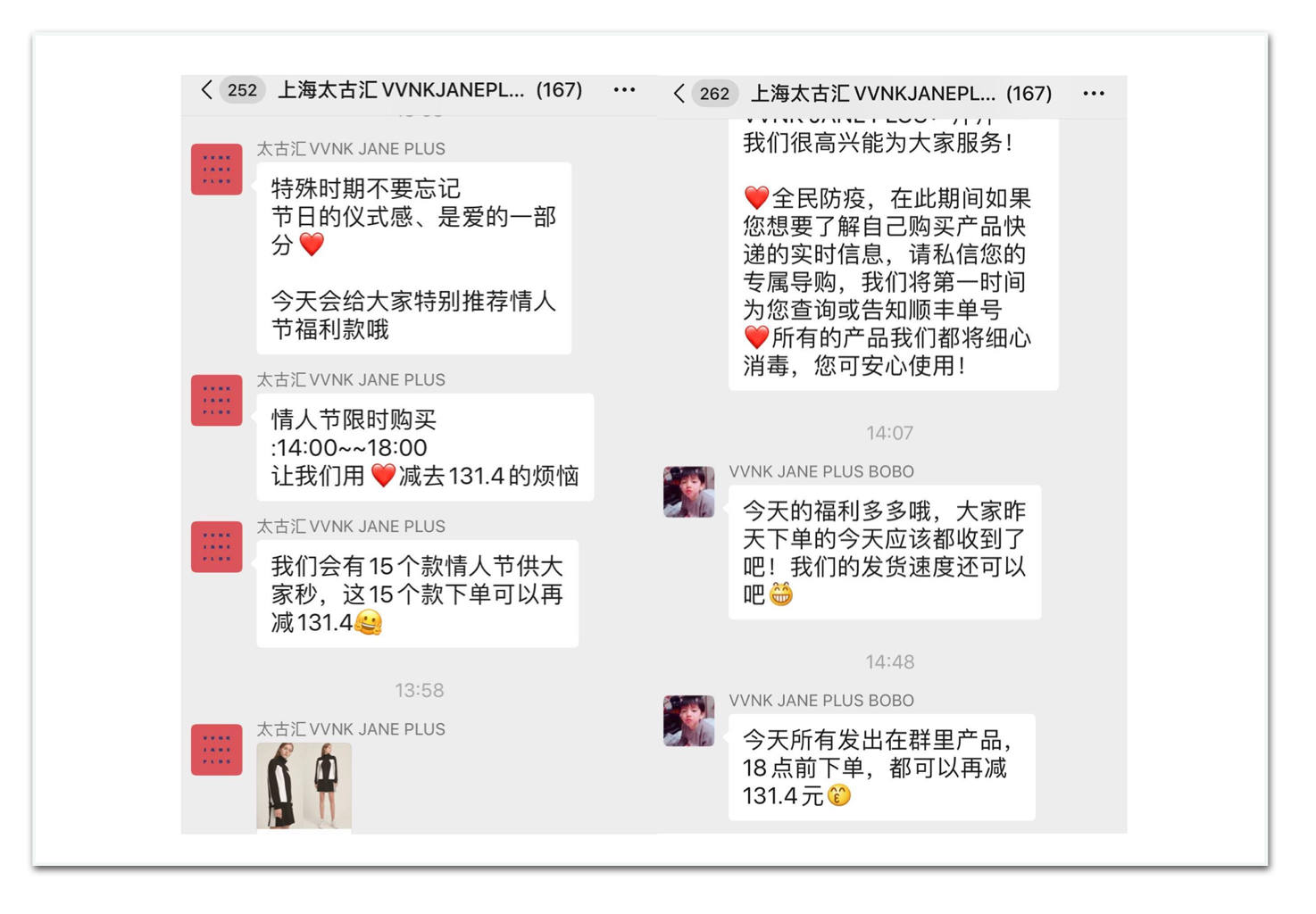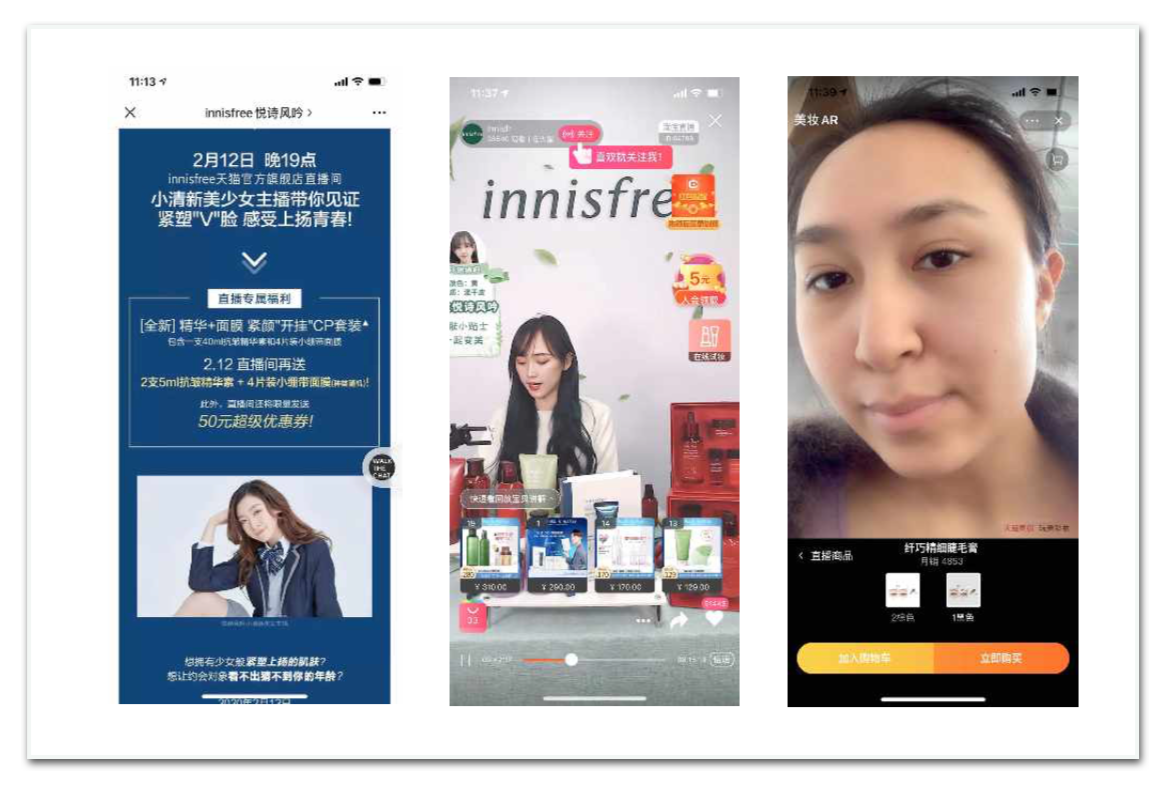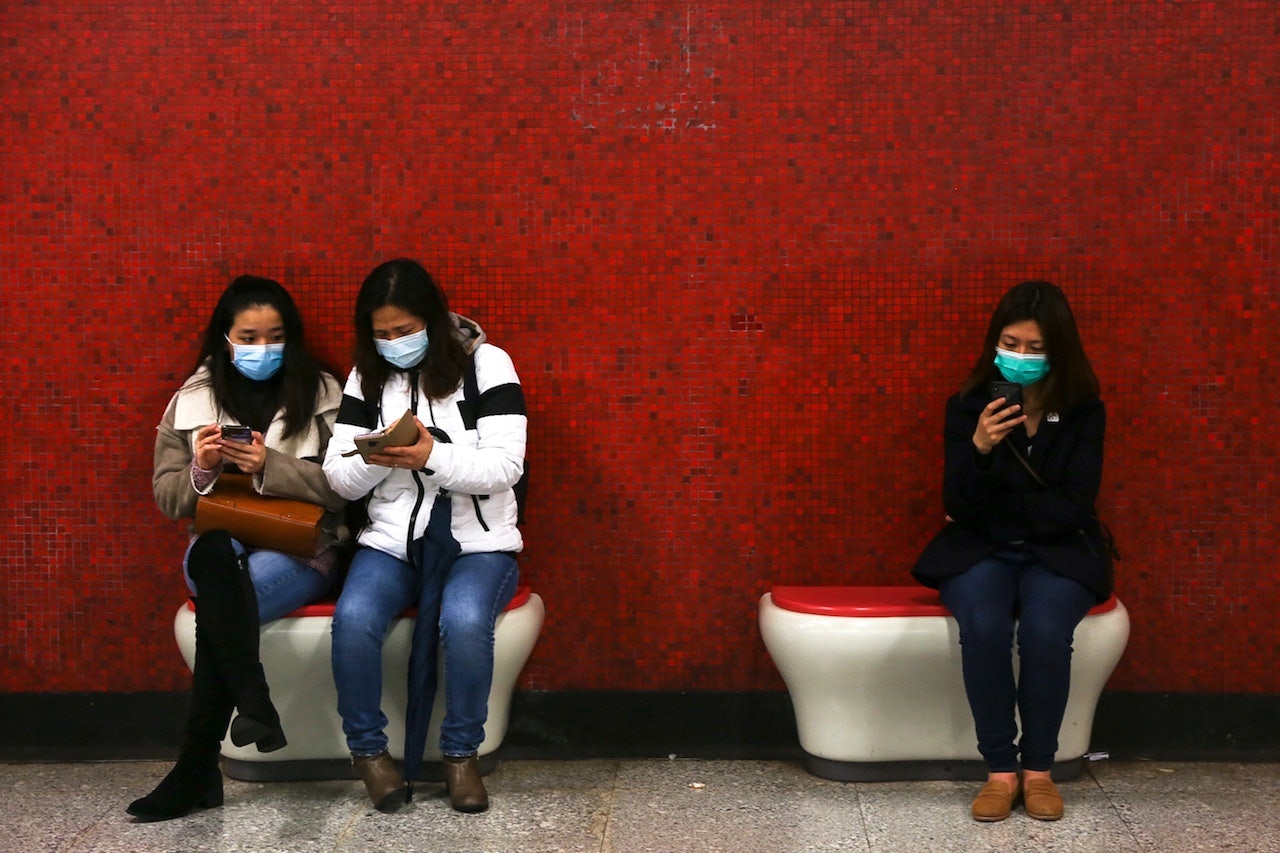“Don’t forget to celebrate Valentine’s Day! Today we will especially present some special offerings,” the message read in a WeChat group built by VVNK JANE PLUS, a high-end independent Chinese designer brand.
The group message was sent to Rachel Ding, a 26-year-old who works at a marketing agency in Shanghai. Before the coronavirus, she was a fan of the brand and often frequented their store at the Taikoo Hui shopping mall to check out the latest offerings. Now it’s been a few weeks since she stepped outside and has been working from home since last Monday, per a request by her company.
“I know it’s a hard situation for everyone now, being locked inside for so long, but it’s nice to not think about the virus for a second and check out your favorite brand,” she said on a phone interview with Jing Daily. She told us the discount from the WeChat group was alluring, especially for a brand that rarely goes on sale. But now, with the discount, she can purchase a full suit for the prince of a single top.
She talked excitedly about how she came across the brand that eventually leads her to the WeChat group. Ding came across VVNK JANE PLUS some time ago at the Taikoo Hui shopping mall. Their shop was located next to a couple of well-known brands with similar pricing like ba&sh and Max Mara Weekend, but VVNK JANE PLUS’ whimsy design and quality materials were an instant draw to her. Ding added their store WeChat account after she purchased several dresses. Since then, she has been a close follower of the brand. She was also happy to be invited to the WeChat group exclusive VIPs a couple of days ago.

The group is quite active with all kinds of deals being pushed out by sales associates. One named Bobo wrote: “I believe everyone has received your last night orders today; hope you are satisfied with the delivery speed. Hurry off to place your orders today before 6:00 pm to get an additional 131.4 RMB off.” She added a smiley kiss at the end of the sentence.
The offer was intriguing to Ding, and she debated whether or not to place an order. She then admitted that it’s become a ritual for her to check in for new deals every day around 2 pm — the start of the brand’s daily WeChat group flash sale. “It’s become a therapy in some sense,” she said. One of her favorite things is to read the description of the clothes they put up. She showed a screenshot of a silky top and dress she has been eying for a while, it read, “silky fabric with a smooth texture… the floral print was done with environmentally friendly ink, with a widened cuff design and an almost invisible zipper. It’s suitable for a variety of body shapes.”
This message is just one of many that Ding receives daily starting in the early afternoon. Ding’s phone will be bombarded with discounted messages from different brands, namely from an offline buyer store called Look, the fashion brand Peace Bird, and the homegrown beauty brand Perfect Diary. Discounts can be at least 50 percent, with additional offers for VIPs. Each WeChat group has between 100 to 500 people, who joined via an invitation by a store sales associate or staff member on WeChat. Starting WeChat flash sale groups like these are common techniques for many brands to use to get rid of in-store inventories and to survive amid the virus crisis.
As tempting as the offers are, however, they don’t guarantee a purchase. Like Ding described, since being somewhat trapped indoors, many people have been seeking relief online, and seeing a photo of a beautiful piece of clothing can serve as a momentary bit of retail therapy. “I find myself looking through fashion magazines,” said Miranda Xue, who is another twentysomething forced to work from home in Beijing, echoing Ding’s attitude, “They are just pleasant to look at while I am taking a break from the virus updates.”
The reality is that many Chinese citizens stuck at home mourn over the jump in infected cases on a daily basis. For example, on February 13, officials announced an additional 10,000 infected cases overnight, saying it was due to a change in the counting methodology. As the numbers continue to creep up, housebound citizens are hoping for the situation to settle down and longing for ways to release their negative sentiment.
A recent Kantar survey reflected these consumption attitudes amid the virus. Among the 1,000 respondents, including nearly 200 from the worst-hit Hubei Province, the demand for online entertainment has skyrocketed. Understandably, the demand for health-related investment has also gone up, over 38 percent of respondents doubled down on their insurance packages, and 57 percent of high-income respondents decreased their spendings on luxury goods, "purchases of luxury will not be prioritized. Their attitude is also likely to be more rational," predicted Jason Yu, Managing Director, Greater China, Kantar Worldpanel.
Besides, consumers are extra careful with online orders out of fear that transmission of the virus on a package might be possible. This is in addition to the age-old concern regarding online shopping — does the item actually look like the picture? Is the quality good, does it fit properly? The list goes on and on.

Different fashion players applied savvy techniques to tackle those problems. In the WeChat group, while Chinese independent brand VVNK JANE PLUS wrote in the elaborative product descriptions to illustrate the style, beauty brand Perfect Diary encouraged enthusiastic beauty consumers to discuss which texture of the eye shadow pallet is better or which color is more fitting for the lighter skin. South Korean cosmetic brand Innisfree is the latest to jump on the trend too. It directed traffic from WeChat to Tmall to watch their livestream session, where the host leveraged AR technology for virtual try-on during the livestream session. Viewers flocked to the bottom of the session, commenting “Your skin looks flawless” and “Can you show a different mascara?”
Used properly, advanced technologies can close the gap between a consumer and a brand, and in the process, simulate an offline-store experience, but with added social interactions, which act as “retail therapy” to many anxious minds looking for distractions or hope, like Ding, who in the end, placed an order for a floral print dress and shirt. She said she would be happy to wear it outside when all of this will someday be over.
